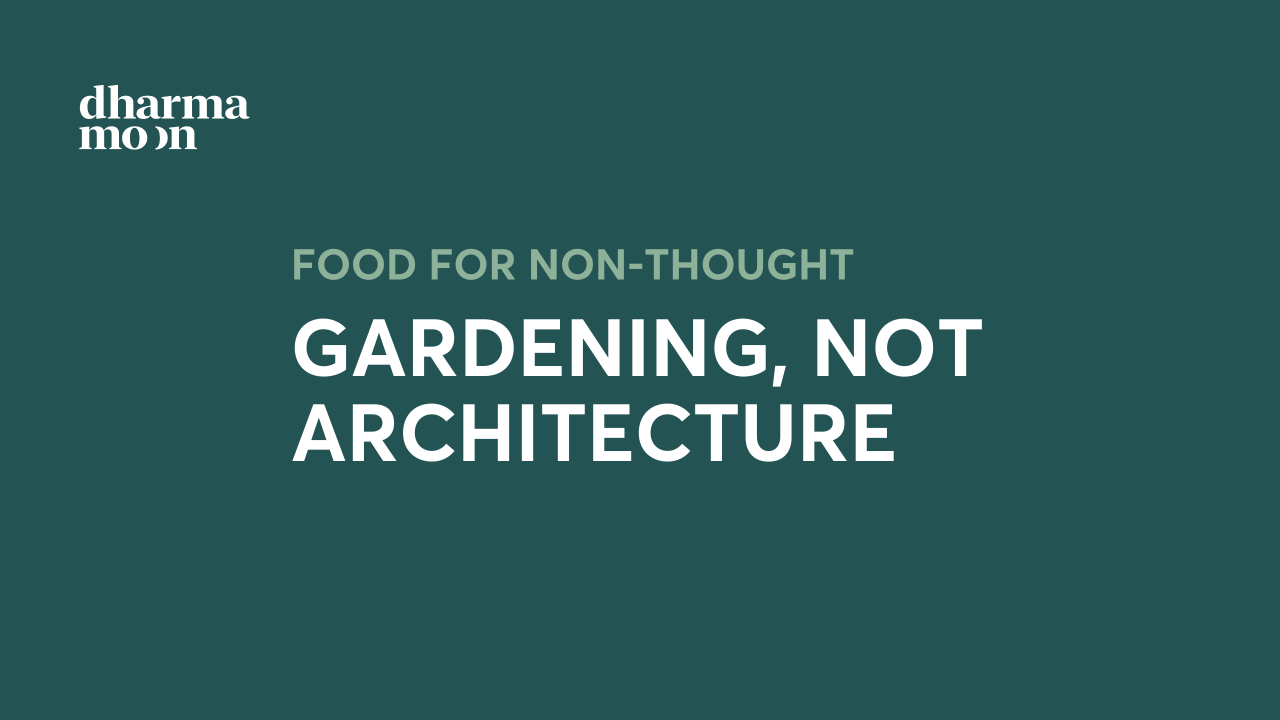Gardening, Not Architecture

Written by Jen Liu
“When constructing a building, airtight precision and predictability are exactly what we want. But when growing a garden — which inner work more closely resembles — patience, adaptability, and a healthy amount of friction with the external world are what we need.”
In the 1970s, one of my heroes Brian Eno and his friend Peter Schmidt created a wonderful tool called Oblique Strategies, a deck of over 100 cards designed to help musicians unlock creativity and curiosity in the recording studio. Each one offers a brief prompt or contemplation, ranging from the overtly literal ("Abandon normal instruments") to the mystical and philosophical ("Honour thy error as a hidden intention").
One of my favorite cards reads, "Gardening, not architecture."
I think about this card often, not just in the context of making art, but as it relates to contemplative practice. The wellness industry is rife with blueprints, so to speak, that promise us a new and improved spiritual home: follow steps one through ten, and at the end, you'll be ready to enjoy your new life. If you just follow this diet, meditate this long each day, or use that product, you can expect to manifest results in a pretty linear fashion.
The problem is, the path of self-discovery rarely looks like this. The deeper change we seek — gratitude, peace, compassion — can't be manufactured, so taking this kind of architectural approach, while it may scratch a certain itch for structure and yield some positive results, often falls short.
It's not a coincidence that we use the word "growth" when talking about meaningful change. We're speaking of something organic, not made of nuts and bolts. When constructing a building, airtight precision and predictability are exactly what we want. But when growing a garden — which inner work more closely resembles — patience, adaptability, and a healthy amount of friction with the external world are what we need.
Contemplative practice is a dynamic process that involves the emergence of something alive: alive in that it is susceptible to decay, frequently surprises us, and will never not require care in order to thrive.
In a garden, we can never fully account for the mice that feed on plants, torrential rain showers that damage new seedlings, or dry spells that wither them. Our unique life experiences are the same way. But these uncontrolled variables we encounter when cultivating our inner garden are not inconveniences to eliminate. They are the path itself.
No amount of hired hands or materials could ever help us erect a tower of wisdom in a week. And unlike the carrying out of an architectural plan, there's never really a point where the process of growth is finished. As gardeners, we get the fulfillment of watching seeds come to fruition, yet fruition isn't final. This beautiful paradox is what makes our relationship to our contemplative practice alive, complex, and worthwhile, all at the same time.
